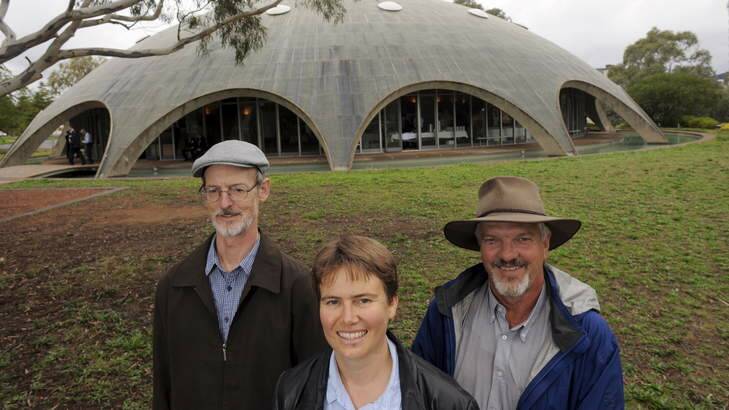A self-described "discovery-junkie" with a passion for biodiversity will take his place among Australia's scientific elite this May.
Subscribe now for unlimited access.
or signup to continue reading
Of 21 researchers who have been elected fellows of the Australian Academy of Science, more than a third are based in Canberra.

Craig Moritz and six of his colleagues from the Australian National University will be among the group, along with Elizabeth Jean Finnegan who works in the plant industry division at CSIRO Black Mountain.
A further three researchers from interstate institutions make use of the National Computational Infrastructure facilities at the ANU.
The academy each year elects some of Australia's best scientists to its fellowship, which now stands at 481.
Professor Moritz, an evolutionary biologist, researches how environmental change shapes the biodiversity of the world's plants and animals through evolution. Although he never set out to study the impacts of modern day climate change on the Australian environment, Professor Moritz said he found it could not be ignored.
In a recent study of Californian national parks, he found mammals that lived at high altitudes becoming endangered due to increases in minimum temperature. "For people who really love and appreciate biodiversity it's really a very disturbing thing to see," he said.
Professor Moritz said he fully expected to see some of the same effects of climate change in the mountains and wet tropics of north Queensland.
"If things warm up on mountains, if the species are vulnerable they have nowhere to go," he said.
Professor Moritz has been involved in the discovery of dozens of species, but said the tiny Bynoe's gecko was his favourite.
Found across large parts of Australia, in some gecko populations there are no males, the females reproduce by cloning themselves.
The academy's president Suzanne Cory described the new fellows as the "Olympic athletes" of science, saying they were doing all significant work in their chosen fields.
Chemist Michelle Coote and mathematician Alan Carey, both ANU researchers who use NCI facilities, were among the other fellows announced on Wednesday.
■ Incompetence within government has caused delays to the distribution of nearly $500,000 for science promotion, the opposition says. But the government said it was in the process of completing contracts with successful National Science Week applicants.

